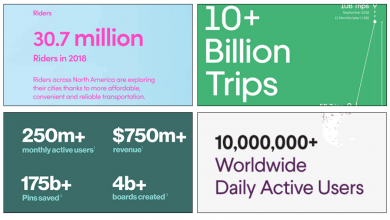Why Microsoft’s return to the office may not be the norm across the rest of the tech industry

What does Microsoft’s return to the office mean for everybody else?
That was one of the questions raised by the tech giant’s announcement Monday that it will fully reopen its Washington state offices, including its Redmond headquarters, starting Feb. 28. The company says it will offer flexibility but expects most employees to be back in the office at least 50% of the time.
Microsoft and other big tech companies were among the first in the country to ask employees to work from home at the onset of the COVID-19 pandemic nearly two years ago. The rest of the industry followed suit.
But the return could be different, based on fundamental changes in the industry and society in the meantime.
That’s one of the takeaways from a conversation with Michael Schutzler, CEO of the Washington Technology Industry Association, which represents tech companies across Washington state. WTIA has gone fully virtual itself, giving up its downtown Seattle offices for good. The organization is also redefining its own boundaries in the process.
Continue reading for excerpts, edited for clarity and length, and listen to an extended version of the conversation on the GeekWire Podcast. Listen above or in any podcast app.
What are you hearing, at this point in the pandemic, about what companies are doing, and what they’re planning in terms of their return to the office, if they’re returning at all?

Schutzler: It’s no surprise that Microsoft announced this. But the vast majority of companies are definitively declaring they’re hybrid. That’s a vast majority of tech companies. Almost all companies, even the small ones, are no longer geographically bound. Smaller companies are recruiting people from all over the country. Even a small- or mid-sized company in downtown Seattle has a whole bunch of people who don’t live in Seattle. And they’re certainly not coming back to the office in Seattle, because they live in Nashville, or they live in Atlanta, or Houston.
What’s driving the push by some companies to return to the office?
They genuinely believe that there are certain activities that just don’t lend themselves to a Zoom call. There’s also no relationship being built in Zoom. Those are transactional meetings. If you want relationships formed, you need interactions. And so I think they’re really trying to make sure that they don’t lose an essential part of the culture, their fabric of collaboration.
How are you seeing ‘hybrid’ being defined, more broadly?
If you read through all of the fine print in Microsoft’s announcement, it’s very manager-driven. So I think hybrid is going to depend on job classes. I think hybrid is going to depend on activity sets. It’s going to be a mish-mash of things. I don’t think there’s going to be a one-size-fits-all answer for this.
How does the size of a company factor into its approach?
It’s almost ironic, actually. For smaller companies, less than 500 people, the ratio of real estate expense as overhead relative to all the other SG&A [Selling, General and Administrative] dollars looms large. We’re 70 employees, and we used to be in downtown Seattle. We were spending $550,000 to $600,000 a year on basically rent plus stuff to make a place where people come in. Well, when we stopped spending that, we found lots of really good uses for half-a-million dollars. Amazon, Microsoft, they have billions of dollars of real estate expenditures, but the way their cost structure is set up, they have less flexibility than a little company with 500 employees.
“Tech has always been fluid in this way. But this shift has now made it almost fungible. It’s hard to define a geographic boundary. It just moves around. It’s kind of like Bitcoin.”
The impact on women of color: I do want to bring one thing up that I’ve been been reading more about. … What we’re seeing is evidence that women of color, in particular, are the least likely to respond positively to, “You must come back into the office.” Because what women of color are discovering is that they like their jobs more [when working from home], and they like their employment relationship more, because they’re not being confronted with all the inherent bias and microaggressions that they’ve been dealing with forever in our industry.
What happens to the sense of place in the industry in all of this?
It’s as easy as turning on a laptop to relocate these days. Just because Microsoft, or Amazon or Expedia are creating jobs in the state does not mean that the employees who are taking the jobs are residents of the state. The company still has nexus inside the state. But where’s the headcount? Remember that whole ruckus about headcount and taxes? Well, that’s really going to be hard to do if you can’t find the bodies, or the revenues, for that matter.
The industry as its own decentralized system: Tech has always been fluid in this way. But this shift has now made it almost fungible. It’s hard to define a geographic boundary. It just moves around. It’s kind of like Bitcoin, right? The whole industry has a Bitcoin flavor to it. … It’s really easy: push a button. The whole industry is now like that.
What can the typical engineer expect? Is some element of working from home going to be the new reality?
I think so. And I think flexibility on how to make that decision is going to skew very heavily towards the employee.
What advice would you give, based on your experience, about maintaining and building an organizational culture in this hybrid/remote world?
That seems to be the most difficult question to answer for all companies. The fundamental element of our human existence is that we’re pack animals. We do well in groups. We’re tribal beings. And if we don’t have the opportunity to collaborate around the campfire occasionally, we don’t do too well. That’s the hardest thing that companies are grappling with. We’re still just starting to sort that out. It’s a cool place to be. It’s very creative and inventive. But nobody has an answer yet.
It sounds like a great opportunity for entrepreneurs to come in and solve.
It’s an enormous opportunity. What is that connective tissue? How do you create it? What are mechanisms that make it easier to build relationships across geographical boundaries that expand literally across the globe? That’s pretty darn cool, what that portends for the future of work.
Conclusion: So above is the Why Microsoft’s return to the office may not be the norm across the rest of the tech industry article. Hopefully with this article you can help you in life, always follow and read our good articles on the website: Ngoinhanho101.com





